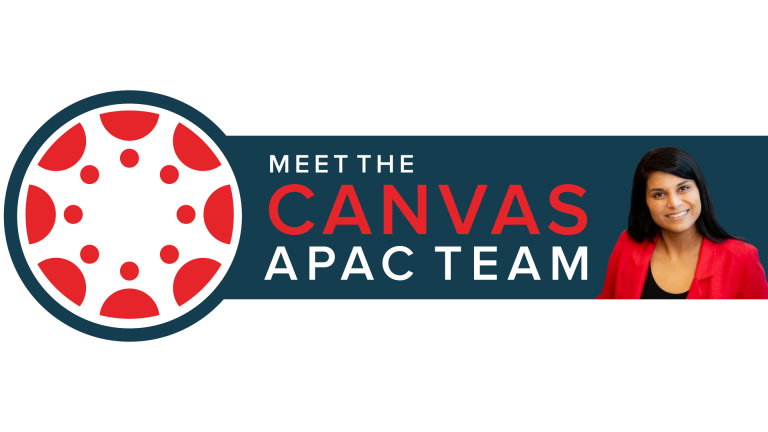
In a presentation at CanvasCon Sydney 2019, Craig Rhodes from ICL Education Group in Auckland, NZ asked the question:
Why use Canvas for research?
The answer: because you are already using it.
Typically, universities and other research institutions collect research and manage participants through the setting up of websites, shared documents, forms and paying for expensive survey tools. This often leads to a fragmented experience for academics, researchers, learners and survey participants and also causes additional maintenance and oversight by IT departments. Since Canvas is already collecting and exposing your instructional data to academics, why not also use it for research projects?
Here’s how they accomplish this at ICL Education Group:
Engaging and Supporting Participants
Canvas is built for engagement. For ICL, Not only are they able to quickly and easily create public courses and pages to be shared like “mini-websites” but the content is flexible and engaging. Canvas allows for the collection of data in a platform that academics and researchers are already using for instruction and with tools that are more engaging than traditional survey tools. With Canvas Surveys, you can embed content like photos, videos, and content from a wide range of third party tools to direct and support research. Quantitative and qualitative data can be collected using a platform that ICL Education Group’s users already know and trust. And, data can be fully anonymized or collect identification tags depending on the needs of the project, including results and feedback to participants. The best part, Rhodes says, is that it’s easy to configure because ICL is using these tools every day.
Connecting all Stakeholders
In addition to making it easy to build engaging content, Canvas also provides great communication tools. Conferences can be used for live communication with researchers, participants and other stakeholders. Collaborations allow multiple users to work collaboratively on documents at the same time. ICL also leverages the Canvas Conversations as the messaging tool instead of email so that the research and the communications around the research are happening in the same location. They also use groups to quickly and easily divide researchers, participants or other stakeholders into study relevant groups. This way they can have active and control groups within a study, all with appropriate levels of access.
Finally, ICL uses Announcements and Discussions to broadcast information about the study, share interactive messages for study participants, collect qualitative data for social research projects. These two communication methods also allow for video and audio comments that can also be interactive and collect additional data points.
Key for ICL Education Group is the management of all of this communication and collaboration in a safe and secure platform for each of their various stakeholders in their research projects. In a world where data leaks are increasingly common and security and privacy laws are increasingly tight, Canvas provides a safe and secure place to connect with groups of individuals and conduct meaningful research.
Managing Data and Reporting
For ICL, Canvas provides an ample number of participant tools and data exports so that you can connect, collect and collate data for many of your research needs. Canvas Analytics provides single user, course or survey-wide, and account-level data. And, Rhodes explains, these charts and graphs provide a quick analysis of the data that is being requested in the research and again, we don’t need to load the content in an external analytics tool. But, if we do want to dive deeper and compare data points across systems or projects, the data is all exportable in standard formats to allow for this.
Rhodes closes with the following suggestions for those interested in getting started with using Canvas to conduct and support your research.
- Talk to your organisation’s Canvas expert to work out how the tools in Canvas can be used to best effect for your study.
- Check out the comprehensive information and training materials in the Canvas Community at: https://community.canvaslms.com/community/answers/guides/
- Join groups and forums in the Canvas Community to connect with an extensive network of Canvas experts from around the globe to provide ideas, insight and even canvas tools to further support your research at: https://community.canvaslms.com/community/answers
This blog was inspired by the following CanvasCon Sydney Session:
Using Canvas to Support Your Research
Craig Rhodes, “The Canvas Guy” – ICL Education Group, Auckland New Zealand
ICL Education Group is a unique international education provider incorporating language schools founded almost thirty years ago, and a graduate business school providing programmes up to Master’s level, including the only Master of Business Informatics in New Zealand. ICL Education Group also delivers the largest IELTS (International English Language Testing System) examination preparation programme in the country.
Keep learning,
Jared Ward
Manager, Solutions Engineering and Bid Management, APAC
Related Content
 mom_and_baby_with_laptop_2.jpg
mom_and_baby_with_laptop_2.jpgBlogs
 new_and_next_webinar.png
new_and_next_webinar.pngBlogs
 meet-canvas-apac-team-farrah.png
meet-canvas-apac-team-farrah.pngBlogs
